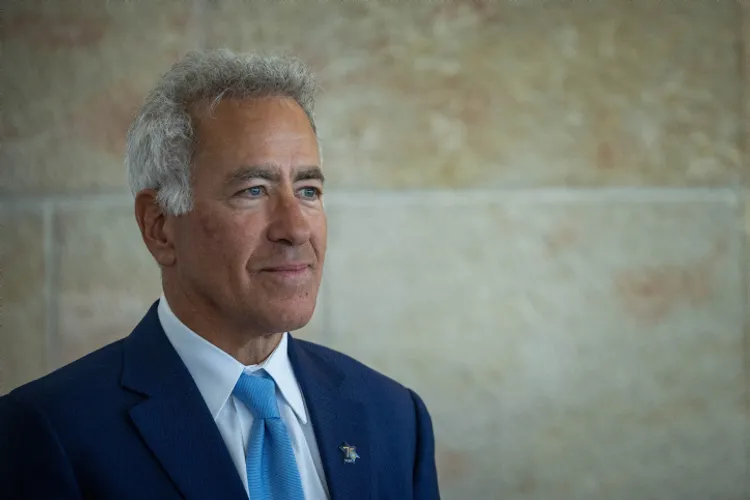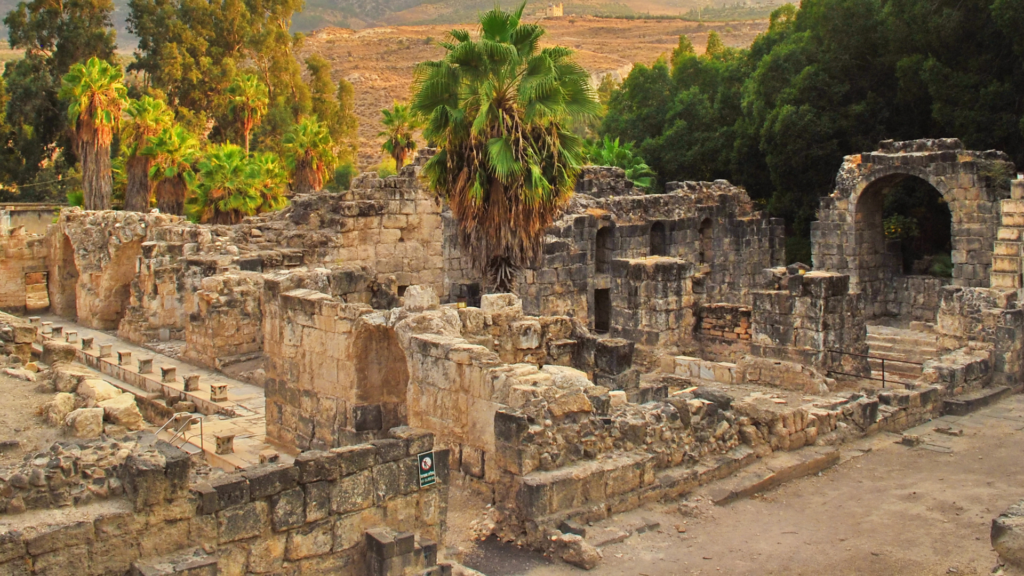
Israelis Honor Fallen Soldiers
Israelis Honor Fallen Soldiers
January 8, 2009
The soldiers lingered, arms linked in a chain of khaki around the grave. Their instructions were to disperse quickly after the ceremony because of the threat of rocket fire, but it was hard for them to leave. Many had just come from the fighting in Gaza.
The young staff sergeant they buried Wednesday in the military cemetery of Beer-Sheva, in southern Israel, was the sixth soldier to have been killed in Gaza since Israel’s campaign against Hamas started Dec. 27.
Then the siren wailed. Everyone scattered, looking for shelter, aware that there was maybe half a minute before the rocket, or rockets, fired out of Gaza would land. Some dropped to the ground. Others were crammed into a small concrete-roofed structure nearby. There was a boom, then a second and a third.
The rockets hit open ground in and around Beer-Sheva, causing panic but no serious injuries. But the knowledge that this city, the fourth largest in Israel and a half-hour drive east of the Gaza border, was now within Palestinian rocket range, underpinned the determination of the soldiers who were about to return to the front.
“You did not fight for nothing,” the commander of the elite combat engineering unit had said in his eulogy of the fallen soldier, Alex Mashevitzky, 21 [son of BGU Prof. Grigory Mashevitzky]. “We went out to defend our home.”
The Israeli offensive is, according to military officials, intended to break the military infrastructure of Hamas, the militant Islamic group that governs Gaza, and to put an end to the incessant rocket fire. The assault has been brutal, with hundreds of civilian casualties on the Palestinian side, according to Palestinian health officials.
Three Israeli civilians and one soldier have been killed in Palestinian rocket attacks since the campaign began. Israelis are not relishing what lies ahead if the offensive continues. That would involve taking on Hamas in its urban strongholds, moving farther into the densely populated cities of Gaza and the narrow alleys of its crowded refugee camps. The body count on both sides would inevitably rise.
Yet a majority of Israelis remain staunchly behind this operation, considering it utterly justified. Residents of the south who live within range of the rockets say they hope that the country’s leaders will not give in to international pressure to end the campaign too soon.
“Beer-Sheva residents salute the soldiers,” read a handmade banner hanging outside an apartment building here. The soldiers have a special place in Israeli society and culture.
Men and women are routinely drafted for mandatory service at 18, and when there is a war on, most families know someone involved.
The front pages of Wednesday’s newspapers displayed photographs of the recently fallen soldiers. Of the six in Gaza, three were killed in one so-called friendly fire episode, and an Israeli tank shell might have killed a fourth. Sergeant Mashavisky and another soldier were killed in firefights with Hamas militants.
Israel held its fire for three hours on Wednesday afternoon, granting Gazans a lull to stock up on supplies.
Five minutes before it went into effect a mortar shell fired out of Gaza landed with a pop in a field on the Israeli side of the border, sending up a plume of smoke. As the lull ended and Israeli warplanes headed back toward Gaza, the rocket fire resumed.
More than 20 rockets were launched, a relatively small number for one day, but they are reaching farther into southern Israel.
In the Israeli town of Sderot, less than two miles from the Gaza border, the sounds of battle were audible from the old commercial center on Wednesday night. After a series of sharp bangs there was some confusion over whether they were caused by Palestinian rockets or Israeli bombs.
Sderot has borne the brunt of the crude, short-range rockets that are made in Gaza and known as Qassams, with thousands having fallen in or around the town over the past eight years.
The usual anger and feeling of abandonment has turned into something else. Not relief, but a sense of satisfaction and hope.
Residents are hanging Israeli flags outside their stores and flying them from their cars. “We are really happy,” said Tzuri Chen, a taxi driver. “We’ve waited for this for a long time.”
But he worried that the military might not be given the time to finish the job. “Only not let there be a cease-fire too soon.”
Mr. Chen said his mother-in-law, who lives in Beer-Sheva, had been begging his family to leave Sderot and move there for years.
Now Beer-Sheva is being hit by Hamas’s longer-range rockets. “See,” said Mr. Chen, “should I leave my home?”
George Matayev, a hairdresser, said, “If there is a cease-fire now, we will get to the point where we will have to leave the country, let alone Sderot.”
Ilan Sinai, a mechanic, said he was sorry for the soldiers who were dying, and even for the Palestinian civilians on the other side. But he added, “This is the first time that the children in Sderot are not the soldiers, hiding from the Qassams.”



